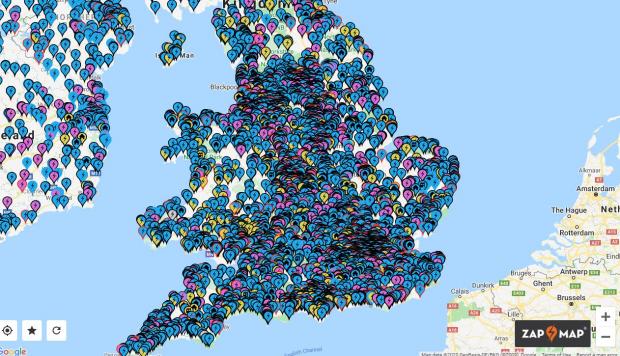By Daniel Wood
The UK has brought plans forward to ban the sale of new petrol and diesel cars to 2035.
Prime Minister Boris Johnson is launching key UN COP26 talks.
These talks will take place in November 2020 in the UK.
He will urge other countries to follow the UK’s lead in setting targets to cut their emissions to net-zero.
This will include significant cuts to greenhouse gases and any remaining pollution offset by measures such as planting trees.
By 2050, the UK is aiming to reach its legal goal of net-zero.
The Government have decided on bringing forward a planned ban on the sale of new petrol and diesel vehicles from 2040 to 2035.
If feasible, they will aim for an even earlier time frame.
At the launch event for the UN COP26, Sir David Attenborough signalled his support for Boris Johnson’s ‘urgent action’ on the climate crisis.
The event kicked off a year of climate action across the UK, the Government said.
Edmund King, AA President, said the new target on car sales was incredibly challenging.
He added: “We must question whether we will have sufficient supply of a full cross-section of zero-emissions vehicles in less than fifteen years.
“We will also need a package of grants couples with a comprehensive charging infrastructure as homes and in towns, cities, motorways and rural locations.
“At the very least the Government should take up the AA demand to cut VAT on new electric vehicles to boost sales and make vehicles more affordable to those on lower incomes.”
Electric Vehicle Charging Points

There are around 15,500 public charging points in the UK, according to Zapmap.
This is five times more than in 2011.
Kirklees Council has recently introduced its first free electric vehicle charging point.
This charging point is currently located in the Huddersfield town centre car park.
It is the first of 105 new electric vehicle charging points in Kirklees, which has come thanks to funding from the West Yorkshire Combined Authority.
Benefits of Electric Vehicles
CHEAPER TO RUN
The electricity to charge an electric vehicle works out around a third as much per kilometre as buying petrol for the same vehicle.
CHEAPER TO MAINTAIN
A battery electric vehicle has a lot less moving parts than a conventional petrol/ diesel car.
There are no expensive exhaust systems, starter motors, fuel injection systems, radiators, etc.
BETTER FOR THE ENVIRONMENT
There will be less pollution as driving electric vehicles will reduce harmful air pollution that comes from exhaust emissions.
Greenhouse gas emissions will be reduced as renewable energy can be used to recharge an electric vehicle.
There are more eco-friendly materials used for electric vehicles, for example, the Ford Focus Electric is made up of recycled materials and bio-based materials.
HEALTH BENEFITS
Reduced harmful emissions are good for the health of both the plant and individuals.
With fewer diesel exhausts on our roads, it will provide us with better air quality.
SAFETY IMPROVEMENTS
Recent findings suggest than electric vehicles can improve safety.
They have a lower risk of fires or explosion and they are less likely to roll over due to their low centre of gravity.

















